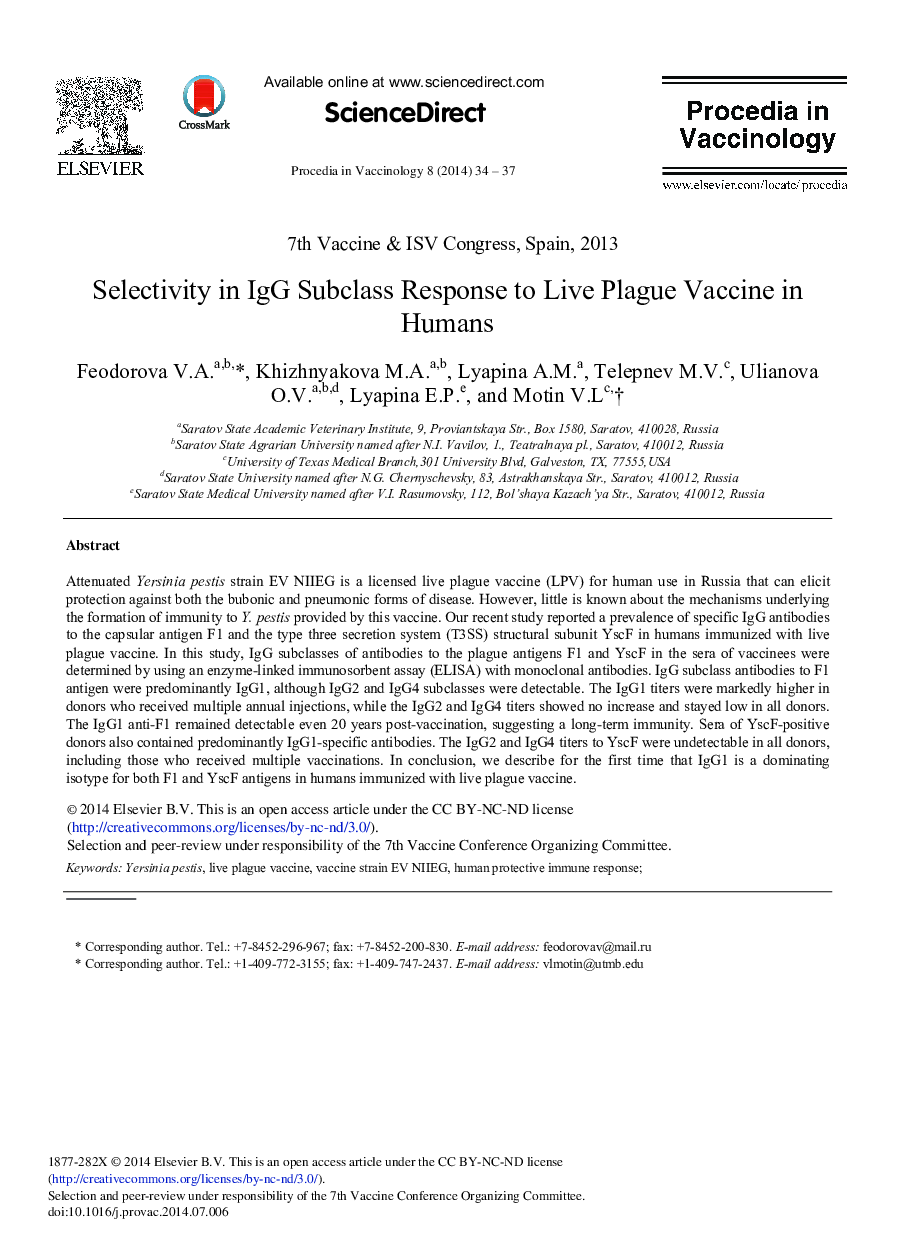| Article ID | Journal | Published Year | Pages | File Type |
|---|---|---|---|---|
| 2473759 | Procedia in Vaccinology | 2014 | 4 Pages |
Attenuated Yersinia pestis strain EV NIIEG is a licensed live plague vaccine (LPV) for human use in Russia that can elicit protection against both the bubonic and pneumonic forms of disease. However, little is known about the mechanisms underlying the formation of immunity to Y. pestis provided by this vaccine. Our recent study reported a prevalence of specific IgG antibodies to the capsular antigen F1 and the type three secretion system (T3SS) structural subunit YscF in humans immunized with live plague vaccine. In this study, IgG subclasses of antibodies to the plague antigens F1 and YscF in the sera of vaccinees were determined by using an enzyme-linked immunosorbent assay (ELISA) with monoclonal antibodies. IgG subclass antibodies to F1 antigen were predominantly IgG1, although IgG2 and IgG4 subclasses were detectable. The IgG1 titers were markedly higher in donors who received multiple annual injections, while the IgG2 and IgG4 titers showed no increase and stayed low in all donors. The IgG1 anti-F1 remained detectable even 20 years post-vaccination, suggesting a long-term immunity. Sera of YscF-positive donors also contained predominantly IgG1-specific antibodies. The IgG2 and IgG4 titers to YscF were undetectable in all donors, including those who received multiple vaccinations. In conclusion, we describe for the first time that IgG1 is a dominating isotype for both F1 and YscF antigens in humans immunized with live plague vaccine.
